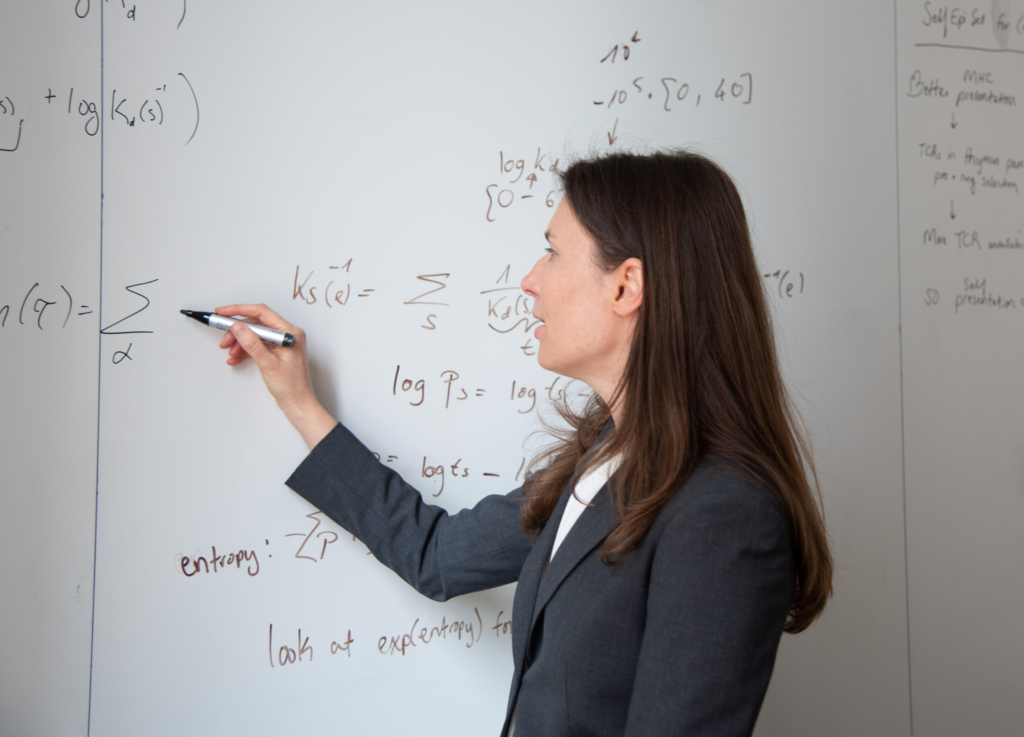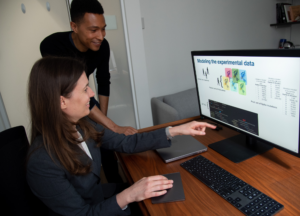Marta Luksza, PhD ‹ Back To 2023 Winners
2023 Winners
Assistant Professor
Oncological Sciences; Genetic and Genomic Sciences
Tisch Cancer Institute at Mount Sinai
Vision
We want to understand how immune system recognizes cancer cells and how tumors evolve to evade immune recognition. We are particularly interested how general and personalized immunotherapies can affect this process. To this end, we develop computational approaches using methods from evolutionary biology, biophysics and machine learning that allow us to find patterns in data and predict tumor evolution. Our ultimate goal is to use these predictive approaches for the design of optimal treatments.
Marta Łuksza, PhD is an Assistant Professor at the Tisch Cancer Institute in the Departments of Oncological Sciences, and Genetic and Genomic Sciences at the Icahn School of Medicine. She completed her Ph.D. in Computer Science at the Freie Universität and the Max Planck Institute for Molecular Genetics in Berlin. Before joining as a faculty at Mount Sinai, she was a Janssen fellow at the Institute for Advanced Study in Princeton. Her research interests are to understand biophysical mechanisms underlying the evolution of fast-adapting populations, of viruses and cancer, and to harvest these mechanisms for predictive analysis. Prof. Luksza develops methods from machine learning, statistical physics, and information theory to address these questions. Her predictive models are used to inform the seasonal influenza vaccine strain selection process by the WHO. Her recent research focuses on predictive models for cancer evolution under immunotherapy. Her work has been recognized with the Pew Biomedical Scholar Award, Dr. Harold and Golden Lamport Clinical Research Award, and a Stand Up to Cancer Phillip A. Sharp Innovation Award.
Evolutionary models for optimized design of personalized cancer vaccines
 In recent years, there has been a remarkable advance in cancer therapies that employ the patient’s own immune system to recognize and kill cancer cells. The advance started with immune-checkpoint blockade therapies, which increase the overall activity of the immune system. These have now been followed by anti-tumor vaccine approaches, which, personalized to each patient, steer the patient’s immune system to specifically target mutations observed in their tumors. While promising, the efficacy of such treatments depends crucially on the composition of the vaccine and the complex interaction of the evolving tumor and the immune system.
In recent years, there has been a remarkable advance in cancer therapies that employ the patient’s own immune system to recognize and kill cancer cells. The advance started with immune-checkpoint blockade therapies, which increase the overall activity of the immune system. These have now been followed by anti-tumor vaccine approaches, which, personalized to each patient, steer the patient’s immune system to specifically target mutations observed in their tumors. While promising, the efficacy of such treatments depends crucially on the composition of the vaccine and the complex interaction of the evolving tumor and the immune system.
“It is a great honor to receive the Pershing Sohn Square Prize and to become part of the inspiring community. The award will allow us to design experiments and computational models that will help us improve our understanding of how cancer and immune system interact and how the latter can be harnessed to effectively treat cancer patients.”

To fully exploit the exciting opportunities of the personalized treatments, we need to better understand the molecular processes underlying the immune recognition of cancer cells. Here we propose to use approaches from machine learning and physics to develop a predictive model to describe these interactions during a vaccine therapy. Model development will be informed by data from experiments with mice with which we will be able to control the complexity of the system by investigating its crucial components. The predictive power of the model will be validated on patient data from two clinical trials with personalized vaccine therapies. On the basis of this model, we will build a protocol for the rational design of personalized anti-tumor vaccine therapies.
“Innovation cannot be rushed. It takes patience, imagination, and a lot of fun to arrive at innovative solutions, and once we do, it appears like they have always been there.”